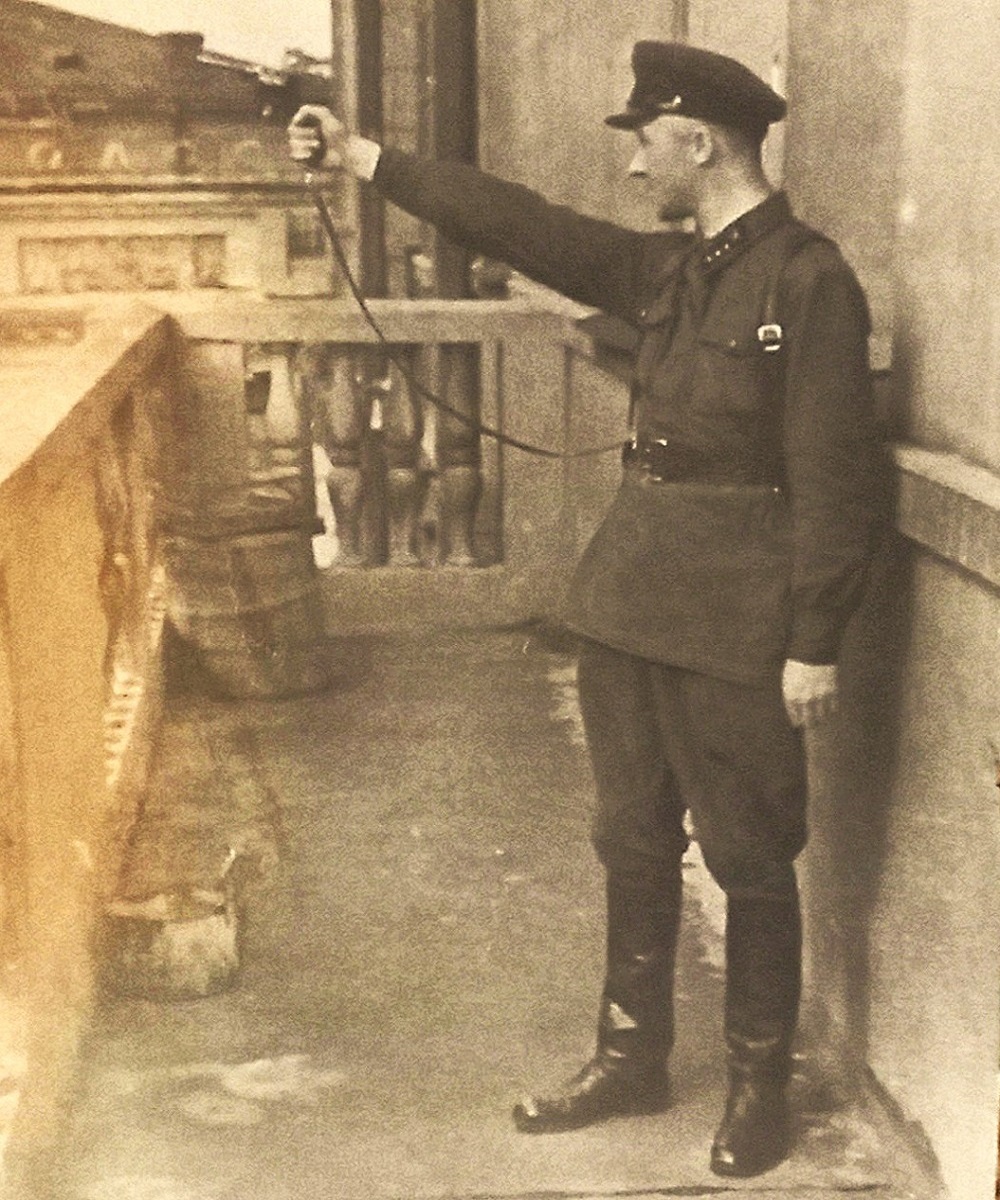
During the Great Patriotic War, a total of 649 signals about enemy air raids and 3,087 reports of artillery shelling were transmitted by Leningrad Radio station, managed by Pyotr Aleksandrovich Palladin.

On such occasions, the city radio used to be disconnected from the broadcast network. Instead, the metronome beating was put on the air. For the Leningrad siege survivors, it sounded like a heartbeat. An accelerated tempo (150 beats per minute) meant an air raid alarm, while the standard one (three times less often) meant an all-clear.
Listening tensely to the beat of the metronome, Leningrad citizens waited for a special click, followed by a human voice saying once again: “Leningrad on air!”. On September 15, 1941, they had to wait for that for 18 and a half long hours.
On June 24, 1941, just three days after Nazi Germany launched its attack on the USSR, the 29-year-old Pyotr Palladin was appointed as general manager of the Leningrad Radio broadcasting center. Since then and until the very end of the Great Patriotic War, he bore full responsibility for its functioning. Having donned a military uniform with the rank of a lieutenant of the 376th separate communications battalion, he became the commander of a platoon consisting of 15 former employees of the radio broadcasting center and two Red Army soldiers.
Pyotr Aleksandrovich’s daughter, Irina Petrovna Palladin, shared with me a unique photograph. It depicted her father when, after yet another air raid, he stepped out onto the balcony of the Leningrad Radio House and fired his gun to signal the end of an air raid.





